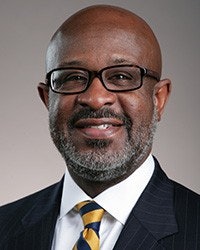By Denise S. Bartell, Sandra Robinson & Willie McKether
Only two-thirds of new college students will complete their degree within six years. For Black, Latinx, and Native American students, this number is much lower. For colleges and universities to close these equity gaps, they must address the core of the student experience: the time that students spend in the classroom. Despite the fact that faculty are so crucial to students’ academic lives, they are often underutilized as levers of institutional change. Moreover, institutions are grappling with faculty burnout, dissatisfaction, and resignations at growing rates.  Dr. Denise Bartell
Dr. Denise Bartell
For institutions to truly transform students’ experiences in the classroom, they must support the faculty experience as well.
In 2018, the University of Toledo joined the Student Experience Project (SEP), which uses more than three decades of research into the impact of students’ psychological experiences to develop and implement practical approaches to creating more equitable educational outcomes. Recognizing the key role of faculty in this work, we established the Equity Champions (EC), a faculty community of practice intentionally designed to build relationships. The response floored us; over the next two years this community grew to over 150 faculty, with more than sixty participating each semester.
Our community was designed to reduce hierarchy and share power between faculty and administrators and was open to all who taught at UToledo. During our weekly meetings we learned, in community, about the persistent and systemic nature of inequities in higher education and shared institutional data so that faculty understood the importance of their efforts to improve equitable student outcomes. To support their work in the classroom, we provided evidence-based tools, including a set of easy-lift, high-impact resources developed by the SEP and an innovative measurement tool called Ascend, which gave faculty the unique opportunity to gather real-time feedback from students about their sense of belonging, perceptions of instructor growth mindset, and other key concepts that SEP research has identified as important to student success. Working together, faculty reflected on their Ascend data and identified SEP resources to support the constructs they wished to improve. As a result, DFW rates declined and retention rates improved for students who took a course taught by an Equity Champion, with a sizable decrease in retention equity gaps. Dr. Willie McKether
Dr. Willie McKether
What we did not expect was that by actively trying to improve students’ experiences, we also improved the faculty experience. At a time when faculty were teaching remotely and isolated from colleagues, they needed the same community and support that they were trying to provide for their students. Many faculty at UToledo participated in Equity Champions for multiple semesters, citing the satisfaction of working in a diverse, multidisciplinary community of peers. Through this work, we learned how critical it is to attend to faculty experiences of belonging, which empowered faculty and supported their ability to foster the same sense of belonging among their students.
Our experience with the Equity Champions provides valuable lessons for institutions looking to engage faculty in improving student outcomes. Often there is an assumption that faculty will see such engagements as too time-intensive and, therefore, not worthwhile. As a result, we often provide faculty development through one-time workshops or passive resources even though research indicates that such practices have little real impact on pedagogical practice. Equity Champions demonstrated that faculty are willing to do this work when they see the value of the hours they dedicate, and that doing so actually enhances their experience at our institutions as well as outcomes for students.
Investing resources in this type of sustained faculty engagement realizes long-term benefits for the institution, as early adopters become eager to share new strategies and find opportunities to improve not only their own classrooms, but their institution as a whole. Champions stepped into roles as allies, advisers, and leaders for the program and took more active roles in supporting their departments and the institution in improving equity of outcomes for our students. What began as a small experiment became an avenue for engaging faculty across UToledo and empowering them as agents of change toward equitable student experiences.  Dr. Sandra Robinson
Dr. Sandra Robinson
Finally, we learned from our participation in the SEP that faculty want to grapple with the big issues and effect change on a larger scale. Doing this work takes courage and persistence, and it requires among faculty the same sense of belonging and community that students need to thrive in college. Given the outcomes for students and faculty at our institution, and the relatively modest cost of the program, it is not surprising that it is being adopted by other institutions, including IUPUI (Indiana University–Purdue University Indianapolis). We are proud of this work by all those who participated in the UToledo Equity Champions and collectively grateful for the sense of community and learning about the value of shared leadership that these three authors experienced in their time working with faculty on this program.
Dr. Denise Susan Bartell is currently the Associate Provost for Academic Affairs at Kent State University and previously served as the Associate Vice Provost for Student Success at the University of Toledo.
Dr. Sandra Robinson is a lecturer of Mathematics and Statistics at the University of Toledo.
Dr. Willie McKether is the former Vice President for Diversity & Inclusion at the University of Toledo.





















